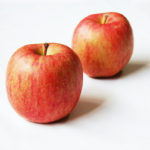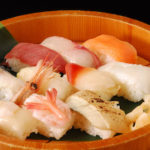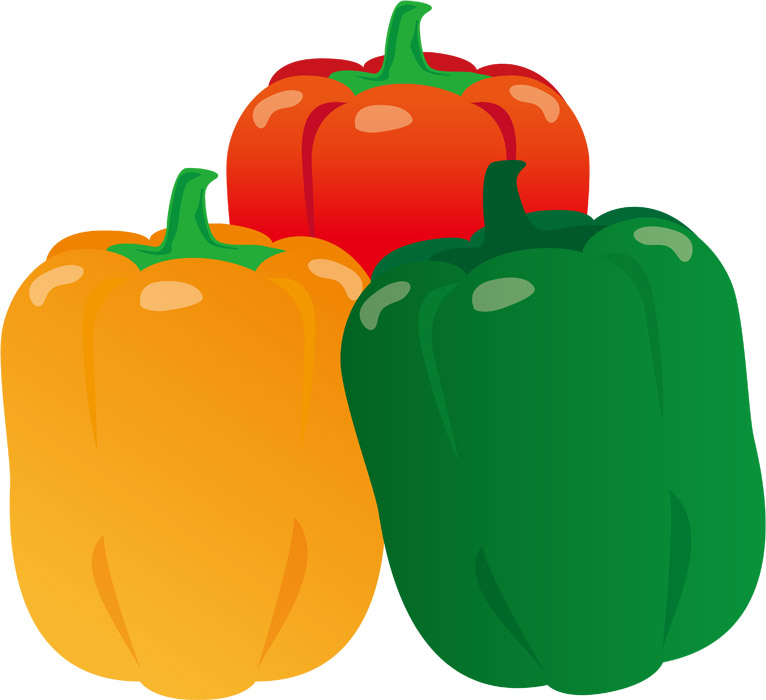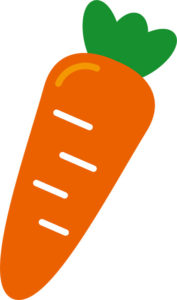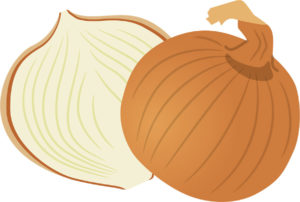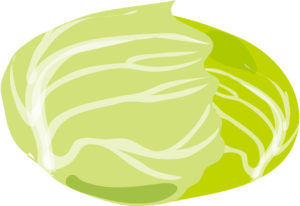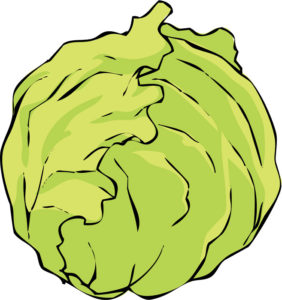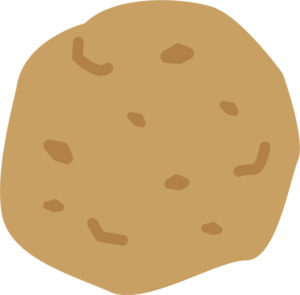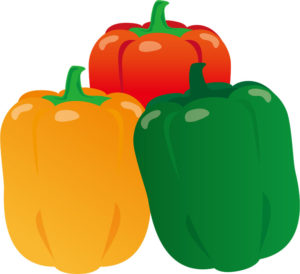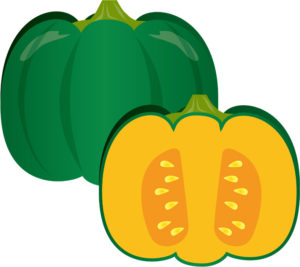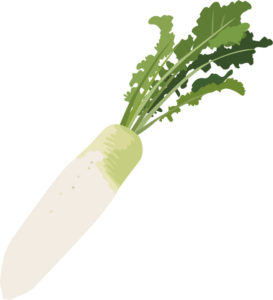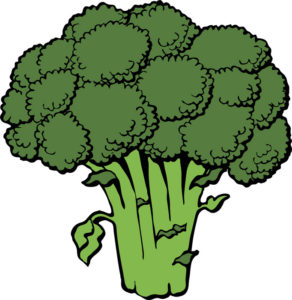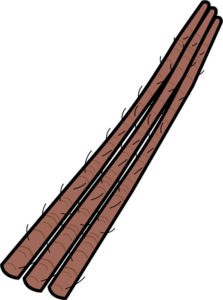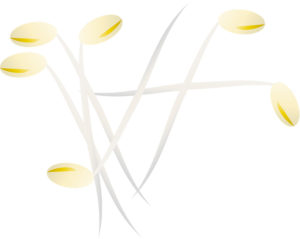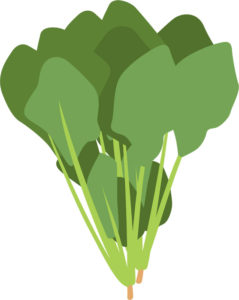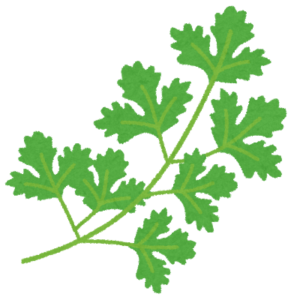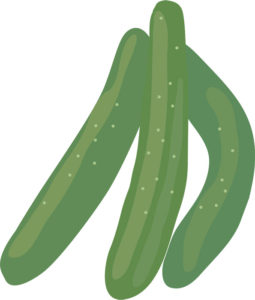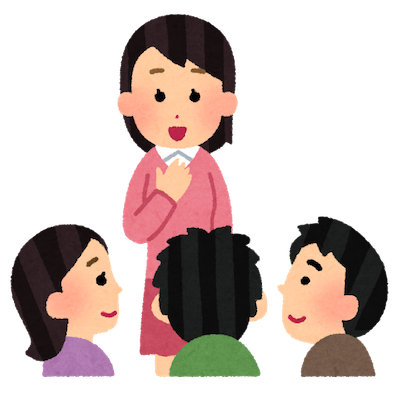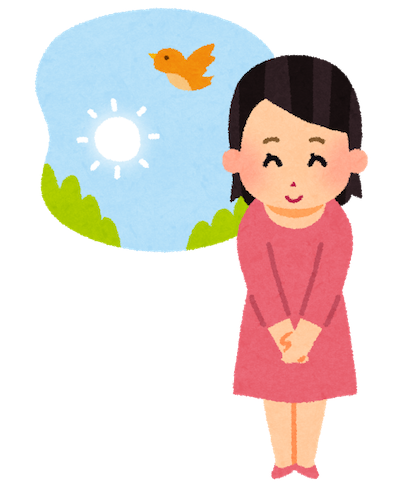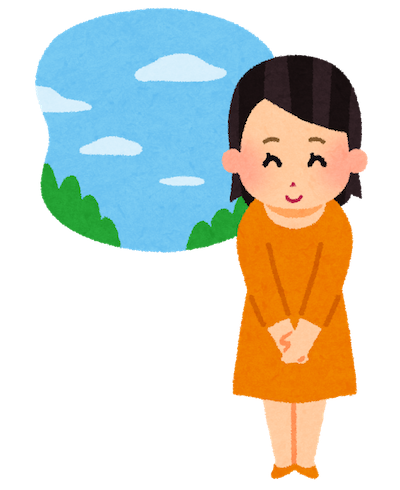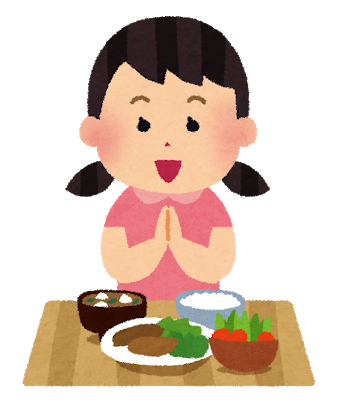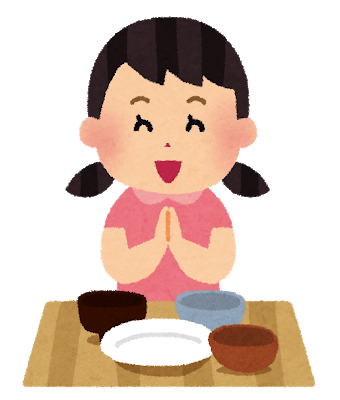Let’s introduce in Japanese using the words you’ve learned!
Greeting
Let’s say hello!
When you meet somebody for the first time,「Hajimemashite.(Nice to meet you.)」「初めまして。」
In the morning,「Ohayou gozaimasu.」(Good morning.)
「おはよう(ございます)。」
In the daytime,「Konnichiwa.」(Hello.)「こんにちは。」
In the afternoon,night,「Konbanwa.」(Good evening.)「こんばんは。」
・My name is ○○.私の名前は○○です。(Watashi no namae ha ○○ desu.)
you can this phrase when you want to tell your name to another person.
・Please call me ○○. ○○と呼んでください。(○○ to yonde kudasai.)
If you have the name you want to call or nickname, use this phrase.
You can get along with the other person .
・I came from ○○. ○○から来ました。(○○ kara kimashita.)
Put your country in ○○,please.
・Nice to meet you. どうぞよろしくお願いします。(Douzo yoroshiku onegai simasu.)
Say this phrase at last.
Introduce about your favorite things
Next, let’s tell about your favorite food and hobby.
When you tell about your favorite things…
・I like ○○. わたしは、○○が好きです。( watashi ha ○○ ga suki desu.)
When you tell about your hobby…
・My hobby is ○○.わたしの趣味は、○○です。( watashi no syumi ha ○○ desu.)
When you tell about your good at…
・I can do ○○.わたしは、○○ができます。(watashi ha ○○ ga dekimasu.)
Tell to somebody put youe favorite things in ○○.
Introduce about your family
・My familly is ○ people.(わたしの家族は、○人です。( watashi no kazoku ha ○nin desu.)
・I have ○○ , ○○ and ○○. ( ○○ to ○○ to ○○ fa imasu.)
<家族>
・母 ・父
・姉 ・兄
・妹 ・弟
・夫 ・妻
・子ども ・ペット など”
<Family>
・Mother ・Father
・Old sister ・Old brother
・Young sister ・Young brother
・Husband ・Wife
・Children ・Pet etc…
Introduce using figures
・My birthday is Day/Month/Years. 誕生日は、○年○月○日です。( Tanjoubi ha ○○nen ○○gatu ○○nichi desu.)
・My age is ○○ years old. (○○歳です。(○○sai desu)
Ask birthday and age
・When is your birth day? お誕生日はいつですか?(Otanjoubi ha itsu desuka?)
・How old are you? おいくつですか?(Oikutsu desuka?)”
Tell about your job
There are many kinds of job.
Q.What is your job? ( anata no oshigoto ha nani desuka?)
A.My job is ○○. 〇〇です。(○○ desu)
<仕事>
・学生 gakusei
・会社員 kaisyain
・医師 isi
・看護師 kangoshi
・介護士 kaigoshi
・エンジニア enjinia
・教師 kyoushi
・公務員 koumuin
・主婦 syufu
・農家 nouka
・自営業 jieigyou
・アルバイト(バイト)arubaito(baito)
・パートタイム(パート)pa-to taimu(pa-to)
<Works>
・Student (gakusei)
・Employee ( kaisyain)
・Doctor (isi)
・Nurse (kangoshi)
・Caregiver (kaigoshi)
・Engineer (enjinia)
・Teacher (kyoushi)
・Public employee (koumuin)
・Houseworker (syufu)
・Far,er (nouka)
・Self-employed (jieigyou)
・Part time job (arubaito / baito)
・Part time job (pa-to taimu / pa-to)
You can tell using workplace.
A.I work at ○○. 〇〇で働いています。(○○de hataraite imasu)
<職場>
・会社 kaisya
・学校 gakkou
・病院 byouin
・工場 koujou
・カフェ kafe
・ホテル hoteru
・居酒屋 izakaya
・銀行 ginkou”
・Office (kaisya)
・School (gakkou)
・Hospital (byouin)
・Factory (koujou)
・Cafe (kafe)
・Hotel (hoteru)
・Japanese pub (izakaya)
・Bank (ginkou)
Let’s practice!Introduce yourself.
初めまして。
私の名前は、〇〇です。
〇〇から来ました。
〇〇で働いています。〇〇歳です。
私の家族は、〇人です。〇〇と〇〇と〇〇がいます。
好きなことは、〇〇です。食べ物は〇〇が好きです。
よろしくお願いします。
Nice to meet you.
My name is ○○.
I came from ○○.
I work at ○○. I am ○○ years old.
My family is ○ people.
I like ○○. My favorite food is ○○.
Thank you.
Can you introduce well?
Let’s get to know yourself better.
Once you get used to it,let’s hear about the other person.

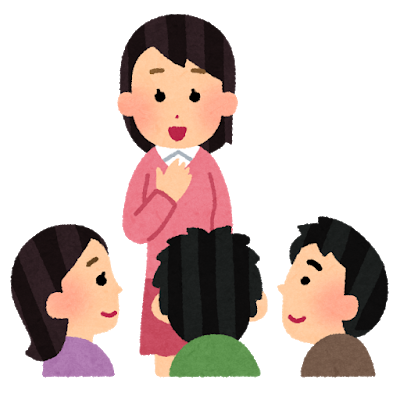
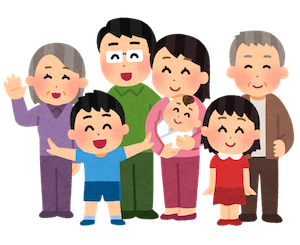


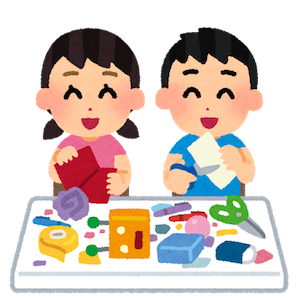
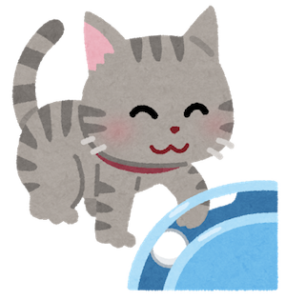


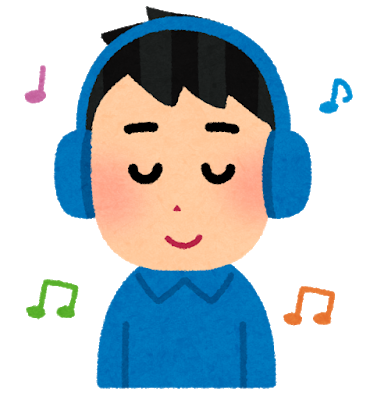
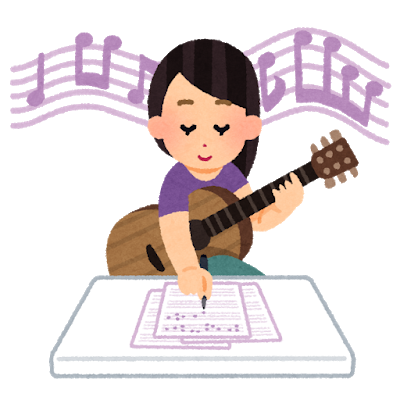
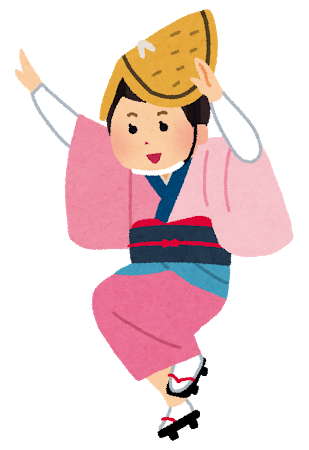

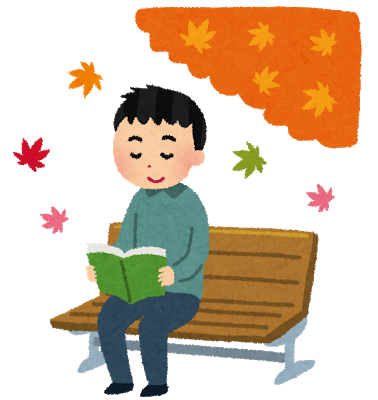

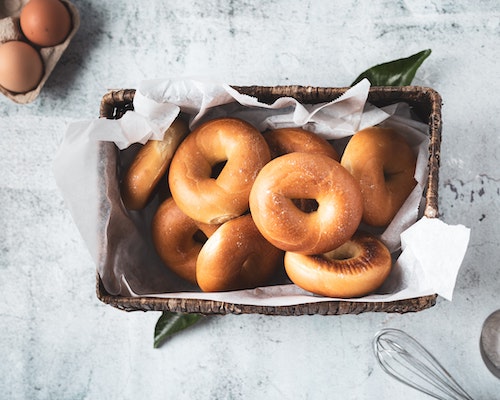
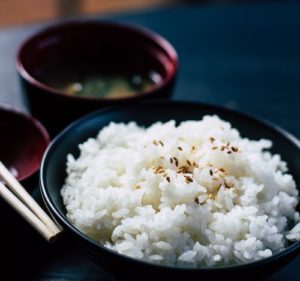

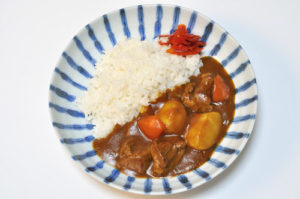
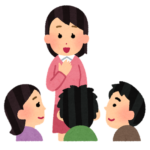
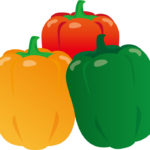 【Vegetables】What is your favorite food?~Let’s study food names in Japanese.~
【Vegetables】What is your favorite food?~Let’s study food names in Japanese.~